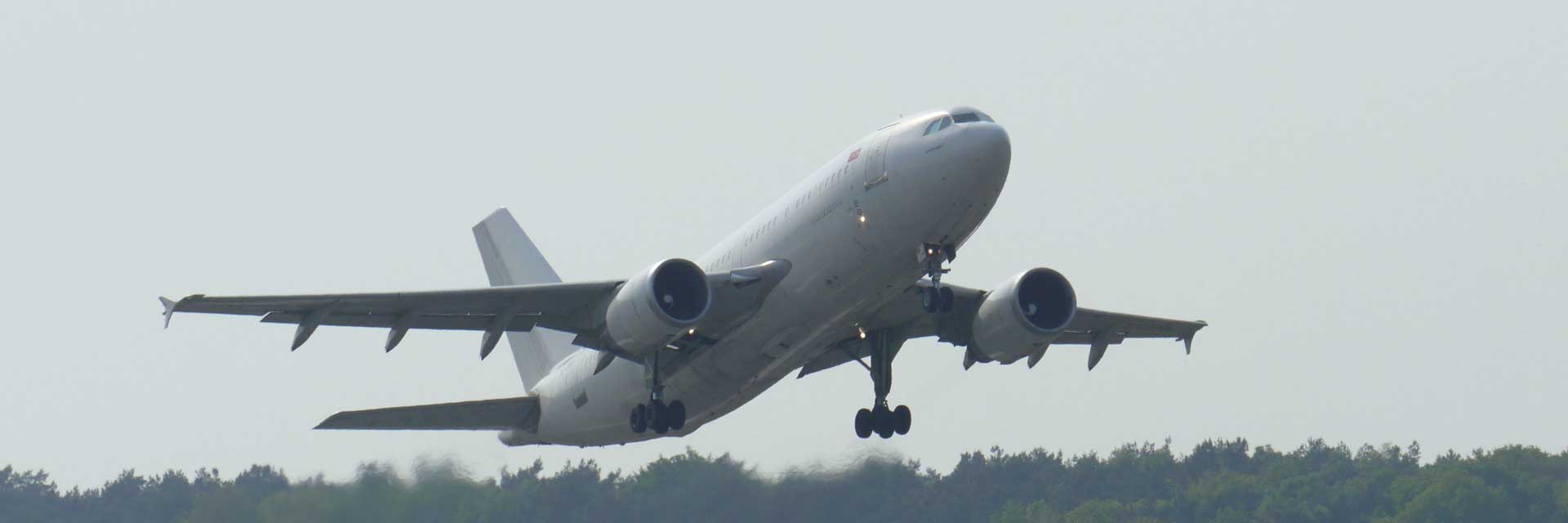GC: You’ve been on a quite a legal journey throughout your career, starting at Clifford Chance and now leading the legal function at Airbus. Did you always imagine yourself moving in-house?
JH: Coming in-house, as a lawyer, it was about taking a chance. I was doing aircraft finance before, acting for banks and manufacturers. That’s twenty years ago now, but I just felt passionate about the business, the industry and then coming into the business – it was a change from being more in an ivory tower to getting on the ground, getting involved and helping the company win.
GC: You’ve spent the better part of two decades now working in aviation, was that an industry you targeted to work in from the outset of your career?
JH: No, it was a complete accident! I really wanted to travel when I was younger, but most of the postings overseas at the time were in banking and finance, so that was the path I took. I moved to specialise in aviation from there, which is fitting really! My life is a series of accidents when I think about it, either good or bad.
GC: Airbus is generally perceived as a supplier of commercial aircraft, but that’s only one of your major business lines. Can you tell me more about Airbus as a company?
JH: While our commercial aircraft is a major part of our business, representing about 70% of turnover, we’re also the world’s number one helicopter manufacturer and Europe’s largest defence company – so we also build things like launchers, satellites and fighter aircraft. So ebbing in both the military and civilian space, it means that while Boeing is a major competitor, we’re also sometimes competing with large defence companies like Lockheed Martin and BAE systems.
It’s a very unique market to be operating in. If you take our backlog of work for examples, we have in excess of €900 billion of work, which in itself is uniquely large. Than you have to consider the geopolitical strategic element to what we’re doing as well – it’s a privilege to be able to know when you see these big deals and you realise that it’s having a marked global impact. That’s a motivation and it’s exciting.
GC: Working with defence equipment in particular must be challenging – are there any aspects there which stand out as being especially complex from a legal perspective?
JH: Export control is a great example. Operating in the defence sector, there are very strict regulations in different countries on the export of defence goods and services. That makes it imperative that we have the requisite number of experts to be able to keep up with all of the changes happening around the globe and it’s different in every country.
GC: How do you and your team approach issues like that – is it a matter of having local players on the ground to help facilitate these types of transactions?
JH: We have a team of more than 400 in our legal and compliance department, so there’s certainly a managing partner element to my position. I am managing a big team who are based all around the world, so we’re undertaking cross-border work with clients and colleagues which can get quite complex, quite quickly.
The objective strategy is to have your Chinese lawyers in China, Brazilian lawyers in Brazil and that’s what we do after we’ve established ourselves in those places, so that you know we are local players. But in the first initial phase, we need to use the expertise of local outside counsel so that we have reliable advice, as oftentimes compliance can mean going beyond just the letter of the law. It’s all about having people experienced in the nature of the transactions we’re looking to carry out.
John Harrison
Group general counsel Airbus
GC: On the legal side, what would you say is the achievement you’re most proud of since joining Airbus?
JH: For me, the integration of the legal function, which only happened last October, would be the biggest achievement and contribution I’ve made to date. What this entailed was the lawyers and compliance personnel across the company now only report to the general counsel, which gives them an independence they might not have had in the past, when we had dual reporting. We have to balance that by making sure that we don’t become the military police, so that remains a challenge – being independent but also appreciated. It’s a major cultural shift, moving from being the lawyer at the end of the corridor to an integral part of the business.
GC: What external factor do you see as having the biggest potential to impact upon Airbus and your role within the company in the foreseeable future?
JH: The third industrial revolution, in terms of Big Data and the digitalisation of all sorts of businesses, means that we as a manufacturing company need to be ready for that evolution. We have a chief digital officer for example and this is one of the challenges that we’re faced with: how are we as a company going to adapt to the gathering of all that data and using it in a constructive way.
If you take for example all of the data that is generated by our products, so let’s take an Airbus A380 for example: think of all of the different things that it’s doing and the sensors that can gather all that information. If you put that information into place and you then divide up the information you’ve got in a sensible way, you’re going to be able to understand a lot about the behavior of passengers or the behavior of the aerodynamics in certain circumstances. Once you’ve got all of that information that can be gathered, it can be used to improve your performance across the organisation and become more efficient.
Now a direct legal example is eDiscovery. There are algorithms which help you in a litigation case sift through millions of emails and pages of documents to identify the relevant conversations or documents. We’re already using this kind of technology, which in the old days would have required 25 lawyers reading every page with keywords, whereas now we’ve got algorithms that are sufficiently sophisticated that it puts you into a position where you have the ability to pare down what’s relevant and what is not. That alone is a massive productivity and efficiency gain, and it’s only the beginning.
GC: I understand your role is broader than a typical GC – can you tell me about some of the other responsibilities you have in Airbus and what they entail?
JH: I am a member of the top management committee, which means that I’m involved in the big decisions of the company every day – be it crisis, strategy, compliance – whatever the day calls for. That means that I know I’ll be meeting with the CEO about the big picture, talking with the CFO on the financial side, attending meetings of the executive committee – it’s a remit that goes beyond purely legal work.
GC: Do you think that the role of the GC is becoming increasingly sophisticated and we’ll see more start to take that step towards the executive committee or board?
JH: I think we’re increasingly moving towards the Anglo-Saxon model and seeing that there is compliance risk everywhere, so you really need to have a lawyer at the table for anything you do – be it M&A activity, raising funds in the market, signing contracts – all of this requires legal input. But even broader than that, by being there, a general counsel can help the CEO see the world through the lens of a lawyers, which gives them added value and a new perspective when they’re undertaking these types of decisions.

